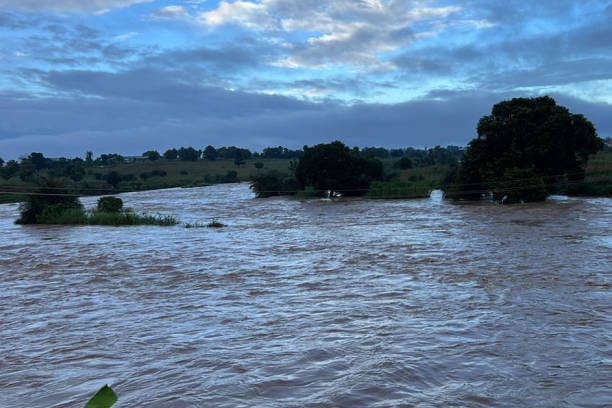In Summary
- Recent heavy rains in Niger have resulted in 21 deaths and affected over 6,000 people at the start of the country’s rainy season.
- Thirteen people were killed due to home collapses, while eight drowned following the torrential downpours.
- The U.N. attributes the increased frequency and severity of these floods to climate change. Last year, floods claimed 52 lives and impacted 176,000 people in Niger.
- The Maradi region has been the hardest hit so far, with 14 deaths reported.
- Affected residents urgently request government help as they face the prospect of more rains without adequate shelter.
DETAILS
Niamy, Niger– The onset of the rainy season in Niger, a predominantly arid country, has brought devastating floods that have claimed 21 lives and adversely affected over 6,000 people, according to Colonel Boubacar Bako, the director-general of civil protection. Speaking on national television, Bako detailed the tragic fatalities, noting that home collapses and drownings were the primary causes of death.
Residents from the Maradi region, one of the hardest-hit areas, shared harrowing accounts of the destruction. Ali Abdou, a 35-year-old local, told The Associated Press that the first rainfall of the season had already demolished homes in his community. “It is only the first rain of the season, and our houses are already down,” Abdou expressed, underscoring the severity of the situation.
The U.N. Office for the Coordination of Humanitarian Affairs has linked the increasing occurrence and intensity of these floods to climate change, highlighting a troubling trend over recent years. In 2022, the Interior Ministry reported that floods killed 52 people and affected 176,000 across Niger.
Despite the regular devastation caused by the rainy season, which lasts from June to September, many areas, including the nation’s capital, Niamey, remain highly vulnerable. Niamey, home to about 2 million people, has so far been spared the worst of this year’s floods, but residents like Maiga Harouna from a suburb of Niamey have already suffered significant losses, with homes destroyed by the storms.
Harouna’s plea for government assistance captures the urgency felt by many: “We desperately need help from the government before the second rain arrives.” As of now, the government has not announced any plans for relocating those who have lost their homes due to the floods, leaving many in precarious conditions with the rainy season set to continue through September.
This situation in Niger illustrates the broader challenges faced by many African nations, where extreme weather events exacerbated by climate change frequently collide with limited local disaster preparedness and response capabilities.
https://www.africanexponent.com/early-rains-in-niger-claim-21-lives-expose-thousands-to-hardship-as-climate-change-intensifies/


